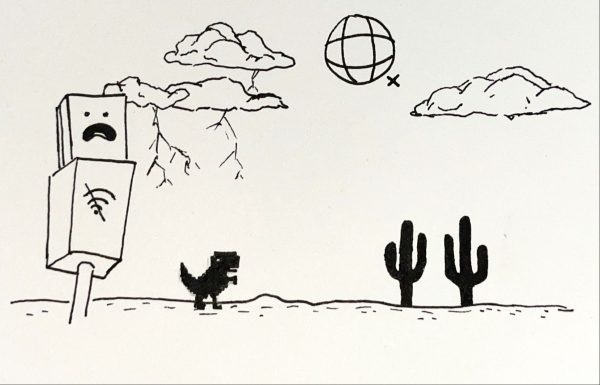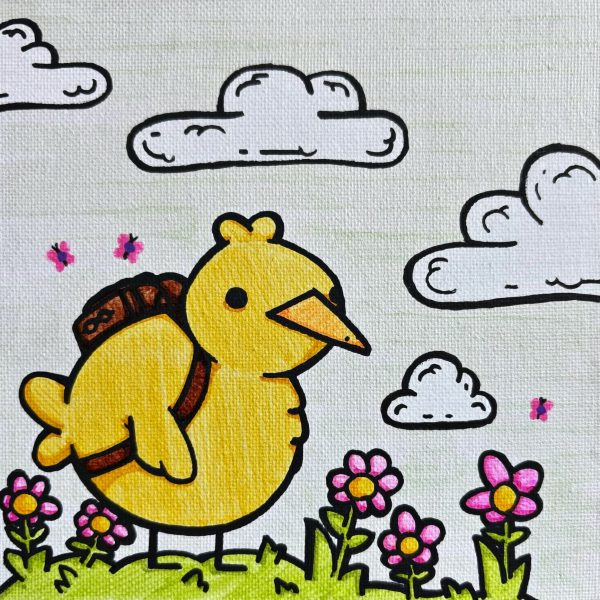Remembering a legend
February 23, 2005
“We were somewhere around Barstow on the edge of the desert when the drugs began to take hold.” So begins the book “Fear And Loathing In Las Vegas,” the magnum opus of the recently late, great Hunter S. Thompson. Arguably one of modern journalism’s most inventive writers, the father of “Gonzo journalism” shot and killed himself Sunday night, leaving behind a legacy of wondrously deranged political commentary, cynical wisdom and mescaline-fueled poetry.
A cantankerous civil libertarian and avowed gun nut, Thompson was a freelance journalist for that consummate ‘60s publication Rolling Stone. He’s also credited, along with Tom Wolfe, with inventing “New Journalism,” a genre of reportage that made reporters as integral to the stories as the subjects they were supposed to be covering. Thompson, perhaps believing that “New Journalism” sounded too respectable for his preferred methodology of writing – namely, getting loaded and having at it – called his style “Gonzo journalism” instead.
If the ‘60s were one big party, then Hunter Thompson was the hangover. In 1971, Rolling Stone sent Thompson to cover a dirt-bike race being held in Las Vegas. Thompson decided to hijack the story and write about the death of ‘60s idealism instead, taking his lawyer and a carload of drugs along for the trip. The resulting story, “Fear And Loathing in Las Vegas,” stands as a bitter tribute to all the ‘60s failed to accomplish. It is an acid-mad rant on Nixon, Vietnam and the declining state of freedom in America. In writing the account, he offered us a take-it-or-leave-it critique of a country turned vulgar by war and greed and sounded a cultural alarm that reverberates through the decades, punctuated by the echo of that final shot.
Upon reflection, it makes sense that Thompson died the way he did. Every suicide is a tragedy, but Thompson’s death seems to have been expected by at least one person who knew him. An Associated Press article from Monday quotes one of his friends: “‘I wasn’t surprised,’ said George Stranahan, a former owner of the Woody Creek Tavern, one of Thompson’s favorite hangouts. ‘I never expected Hunter to die in a hospital bed with tubes coming out of him.’”
A discerning reader could also see that Thompson’s body of work reveals, to say the least, an unquiet mind, a personality that teetered perpetually on the edge of oblivion.
Thompson was his own brand of crazy, a hard-living hotel room-trashing genius who railed against what he saw as the betrayal of the American dream. Anyone familiar with his writing could make an educated guess that an overdose, a suicide or a flaming auto wreck were the top three likely methods by which he would meet his end. Our nation’s premier rock ‘n’ roll journalist – who was portrayed in movies by both Bill Murray and Johnny Depp – gave himself a tragic rock ‘n’ roll exit.
That Hunter Thompson – outlaw poet, junkie madman – should take his own life will probably seem to some people a final act of rebellion, a thumb in the eye of authority, a fist raised in defiance. To others it will be seen as the ultimate act of cowardice, the refusal of the sad old hippie to come to terms with the fact that the ‘60s are over. Regardless of which side one takes, make no mistake: America is poorer for the loss.
Columns reflect the opinion of the author and not necessarily that of the Northern Star staff.












